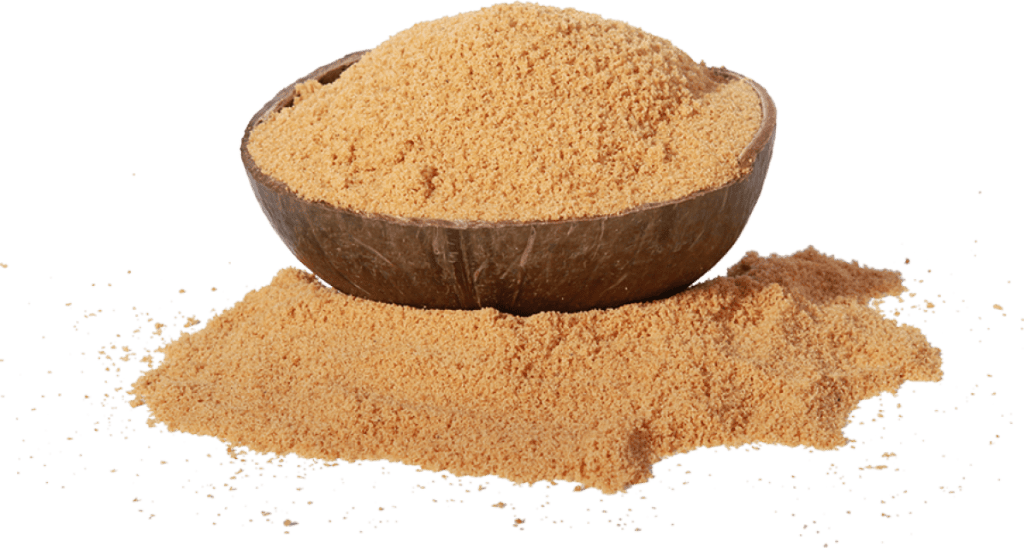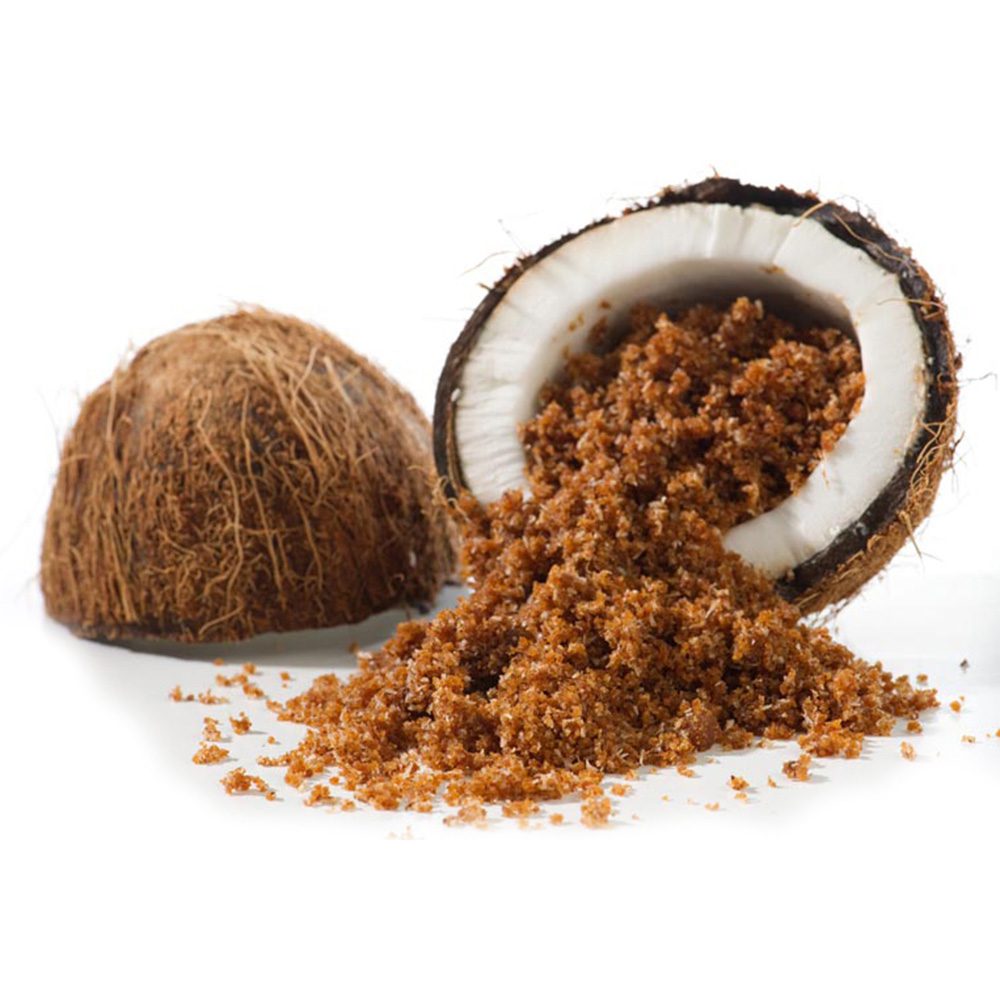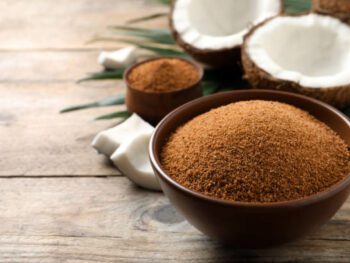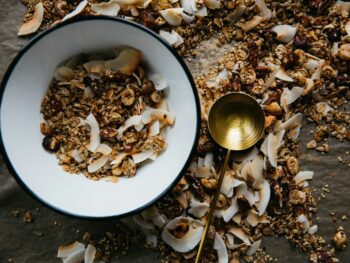
In a world where global agriculture faces challenges like climate change, fluctuating market prices, and the need for sustainable practices, one product is making waves in transforming the fortunes of small-scale farmers: coconut brown sugar. Once a humble, regional sweetener, coconut brown sugar has grown into a global sensation, offering a fair trade solution that empowers farmers, supports sustainable agriculture, and provides consumers with a healthier alternative to traditional sugar.
The story of coconut brown sugar is one of sustainability, fair trade practices, and the drive to improve livelihoods for smallholder farmers. By focusing on ethical production methods and creating direct connections between farmers and consumers, this sugar is not just sweetening food—it’s changing lives. In this article, we’ll explore how the fair trade revolution surrounding coconut brown sugar is benefiting small farms and providing big profits for those who need it most.
What Is Coconut Brown Sugar?
Coconut brown sugar is made from the sap of the coconut palm tree. The sap is harvested from the flower buds of the tree, boiled down to remove the moisture, and then crystallized to create the sugar. Unlike refined cane sugar, which undergoes heavy processing, coconut brown sugar retains a wealth of nutrients and has a distinct flavor profile that is rich, caramel-like, and slightly smoky.
Coconut brown sugar is often considered a healthier alternative to traditional white sugar due to its lower glycemic index, higher mineral content, and organic production methods. It’s rich in potassium, magnesium, zinc, and iron, making it a more nutritious option compared to conventional sugars. These qualities have made it increasingly popular among health-conscious consumers and have driven a surge in demand for this unique sweetener.
The Fair Trade Model: How It Works for Coconut Sugar

At the heart of the success of coconut brown sugar is the Fair Trade movement, which ensures that the farmers who produce the sugar receive fair wages, safe working conditions, and access to a range of benefits that help them improve their quality of life. Fair Trade certification sets out rigorous standards that producers must meet to guarantee ethical practices and transparency in the supply chain.
In the case of coconut sugar, this means that smallholder farmers, who would otherwise be at the mercy of large agribusinesses, can sell their products at fair prices to global markets. This empowers them economically and ensures that they are not exploited for their labor. Fair trade certification also supports environmental sustainability, encouraging farming practices that preserve the local ecosystem and avoid the harmful impact of conventional agriculture.
How Small Farms Benefit from Coconut Brown Sugar Production
Coconut brown sugar is produced primarily by small farms in tropical countries, especially in Southeast Asia. Indonesia, the Philippines, Thailand, and Sri Lanka are the largest producers, with millions of smallholder farmers involved in the cultivation and production of coconut sugar. For these farmers, switching to coconut sugar production has been a game-changer in terms of income, sustainability, and quality of life.
1. Increased Profit Margins
Coconut brown sugar typically provides a higher return on investment than traditional crops, such as rice or corn. While these staple crops can be subject to price volatility, coconut sugar enjoys a steady demand from health-conscious consumers worldwide. Thanks to fair trade premiums, farmers are guaranteed better prices for their products, ensuring a stable income. Additionally, since coconut palms are relatively low-maintenance and drought-resistant, farmers can often grow coconut trees with minimal investment, making it a more profitable venture compared to other crops.
By cutting out middlemen and engaging directly with fair trade organizations and international buyers, farmers can keep a larger share of the revenue from the sale of coconut sugar. This increased income can be reinvested into the farm, used for education, healthcare, or other community development projects, leading to a significant improvement in living standards.
2. Empowerment of Women and Communities
In many parts of the world, women are often involved in the production of coconut sugar. In fair trade coconut sugar cooperatives, women are empowered to take leadership roles in production, management, and even export. The added economic security from the sale of coconut sugar allows families to prioritize the health and education of their children, particularly young girls, who may have otherwise been excluded from education due to poverty.
In some cases, fair trade programs also focus on community development, using funds from the sale of coconut sugar to build infrastructure such as schools, clinics, and sanitation systems. These community-driven initiatives create a ripple effect that raises the standard of living for all members of the community, helping to break the cycle of poverty.
3. Sustainable Farming Practices
Coconut sugar production aligns closely with the principles of sustainable agriculture, which ensures that farming practices are eco-friendly and preserve the health of the land for future generations. Fair trade certification often requires farmers to adopt organic practices, avoid harmful chemicals, and utilize crop diversification methods that maintain soil health and protect biodiversity.
Because coconut trees can live for decades, they are a long-term investment, unlike annual crops that require replanting each year. This allows for a stable and sustainable income for farmers over many years. Additionally, coconut trees are relatively resistant to pests and diseases, reducing the need for synthetic pesticides and fertilizers, which can have harmful effects on both the environment and the health of workers.
4. Improved Education and Healthcare Access
A major component of fair trade initiatives is investing in education and healthcare for farmers and their families. In regions where coconut sugar is produced, fair trade premiums are often used to build schools, fund scholarships, and provide better healthcare services to rural communities. These initiatives help improve literacy rates, lower mortality rates, and create better opportunities for the younger generation.
By providing financial stability and access to education and healthcare, the fair trade coconut sugar industry is helping to lift families out of poverty and create sustainable, thriving communities.
The Global Impact of Fair Trade Coconut Brown Sugar

As demand for organic and ethically sourced products continues to grow, the fair trade coconut sugar market is expanding, creating new opportunities for small farms around the world. Global consumers are increasingly seeking products that align with their values—products that support ethical labor practices, environmental sustainability, and social responsibility.
This shift in consumer preferences has led to the growth of the coconut brown sugar industry, especially in health-conscious markets like Europe, North America, and parts of Asia. For consumers, coconut sugar offers a way to enjoy a natural sweetener while contributing to a more sustainable and just world. By choosing fair trade certified coconut sugar, individuals can support smallholder farmers and ensure that their purchase makes a positive impact on the lives of those producing it.
For businesses, fair trade coconut sugar presents an opportunity to meet consumer demand for ethically sourced ingredients while gaining a competitive edge in the market. Many brands now promote coconut sugar as a healthier and more sustainable alternative to refined sugar, capitalizing on the growing wellness trend.
The Future of Coconut Brown Sugar and Fair Trade
Looking forward, the future of fair trade coconut brown sugar looks bright. As more consumers become aware of the social and environmental benefits of choosing fair trade products, the demand for coconut brown sugar is expected to continue to rise. Additionally, as the global conversation around sustainability and ethical sourcing grows louder, farmers who are part of the fair trade movement will be positioned for long-term success.
The fair trade revolution is not only about providing better incomes for farmers—it’s about creating a more equitable global economy where small farms can thrive, where women are empowered, and where communities are uplifted. Coconut brown sugar is a shining example of how fair trade practices can revolutionize the way we produce and consume food.
Conclusion

The story of coconut brown sugar is a powerful testament to the potential for small farms to make a big impact on the world. Through fair trade practices, these farmers are not only improving their financial well-being, but they are also adopting sustainable farming methods, empowering their communities, and helping to build a more ethical global economy.
By choosing fair trade coconut brown sugar, consumers are supporting this revolution and making a meaningful difference in the lives of smallholder farmers. The sweet taste of coconut sugar is more than just a treat for the taste buds—it’s a symbol of fairness, sustainability, and empowerment. As the market for coconut sugar continues to grow, it’s clear that small farms are poised to see big profits, all while contributing to a better, more sustainable future.



